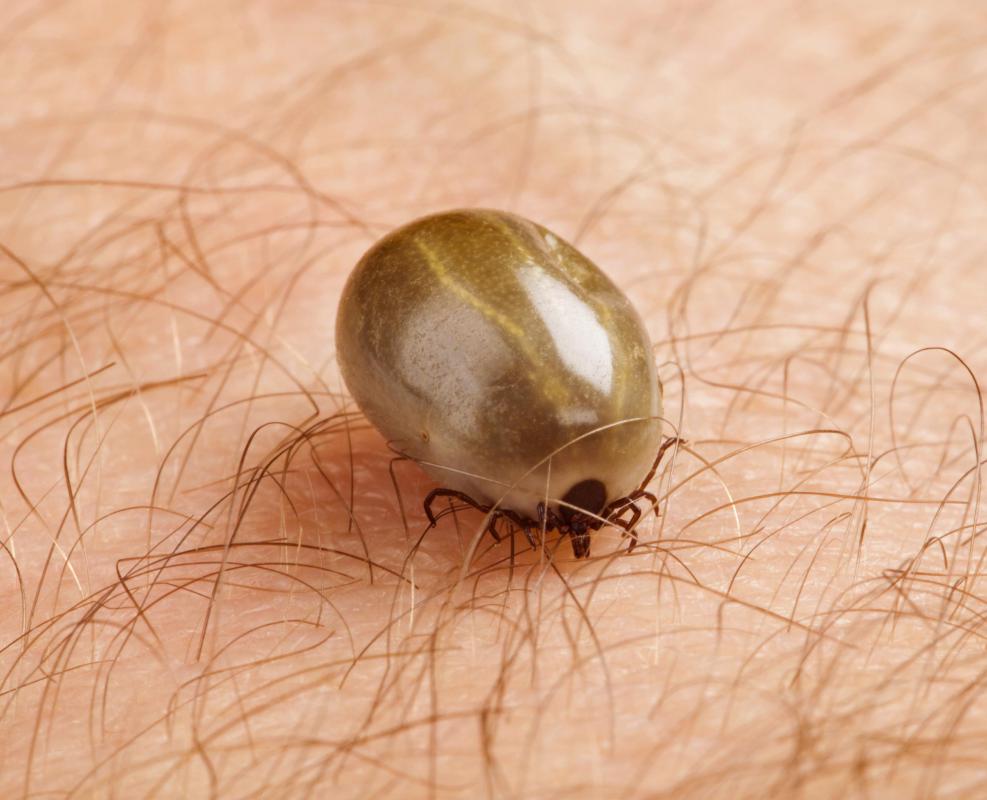At WiseGEEK, we're committed to delivering accurate, trustworthy information. Our expert-authored content is rigorously fact-checked and sourced from credible authorities. Discover how we uphold the highest standards in providing you with reliable knowledge.
What is Babesiosis?
Babesiosis is a fairly rare tick-borne illness, transmitted by the deer tick, which may also carry Lyme disease or ehrlichiosis. Unlike Lyme disease, the condition can also be transmitted through blood transfusion. The infection itself is not bacterial, but instead, is a parasitic infection. It may be treated similarly to malaria, with both quinine and clindamycin, an atypical antibiotic medication.
Most cases of babesiosis occur on the East Coast, particularly in places like Nantucket Island. A few cases have also occurred in isolation on the West Coast and in a few of the Midwestern states. Babesiosis may be underreported because infection may not lead to any symptoms in people that are healthy. Healthy people may easily recover from infections without treatment.

Those most at risk for severe illness from infection include the elderly, and people with impaired immune systems or who have had a splenectomy. Babesiosis can also mean a person is infected with Lyme disease. The two conditions can be passed by the same tick bite, and this can complicate diagnosis.
Symptoms, when they are present, may emerge any time from one to eight weeks after a tick bite. In rare cases, symptoms can occur years after infection. A person carrying the parasite could develop symptoms of the disease if they contract HIV or have a splenectomy.

More typically, symptoms emerge in the first few weeks. They include aches, fever, malaise, nausea and vomiting, headache, night sweats and anemia. While many cases respond to treatment, people who are vulnerable to the illness may have continued symptoms even with treatment. These can include liver failure or extreme mental confusion. When both babesiosis and Lyme disease are present, illness can be much more severe and more difficult to treat.

Due to the fact that babesiosis is rare, it may not always be diagnosed. If a person is aware that they’ve recently had a tick bite, most medical professionals will do blood testing to look for the presence of the parasite in blood cells. On the other hand, when a person is unaware they have had a tick bite, the disease may not be suspected. One significant clue to this possible disease is anemia and mild to major jaundice.

Babesiosis can have severe implications to the elderly and to those with autoimmune conditions or who have compromised immune symptoms. Even with treatment, the condition is fatal to a small percentage of the people who contract it. Most will recover completely, and many may never know they had the infection.
Since treatment is not always successful, prevention of tick bites is especially important. Wear long sleeves and long pants (in light colors) in grassy areas or forest areas, or in any place where deer ticks may be present. Doctors also recommend using an insect repellent with DEET, and thoroughly checking the body for ticks after being in such areas. If you do find a tick, follow the steps for how to remove a tick and have the tick tested for tick-borne illnesses.
AS FEATURED ON:
AS FEATURED ON:
















Discuss this Article
Post your comments